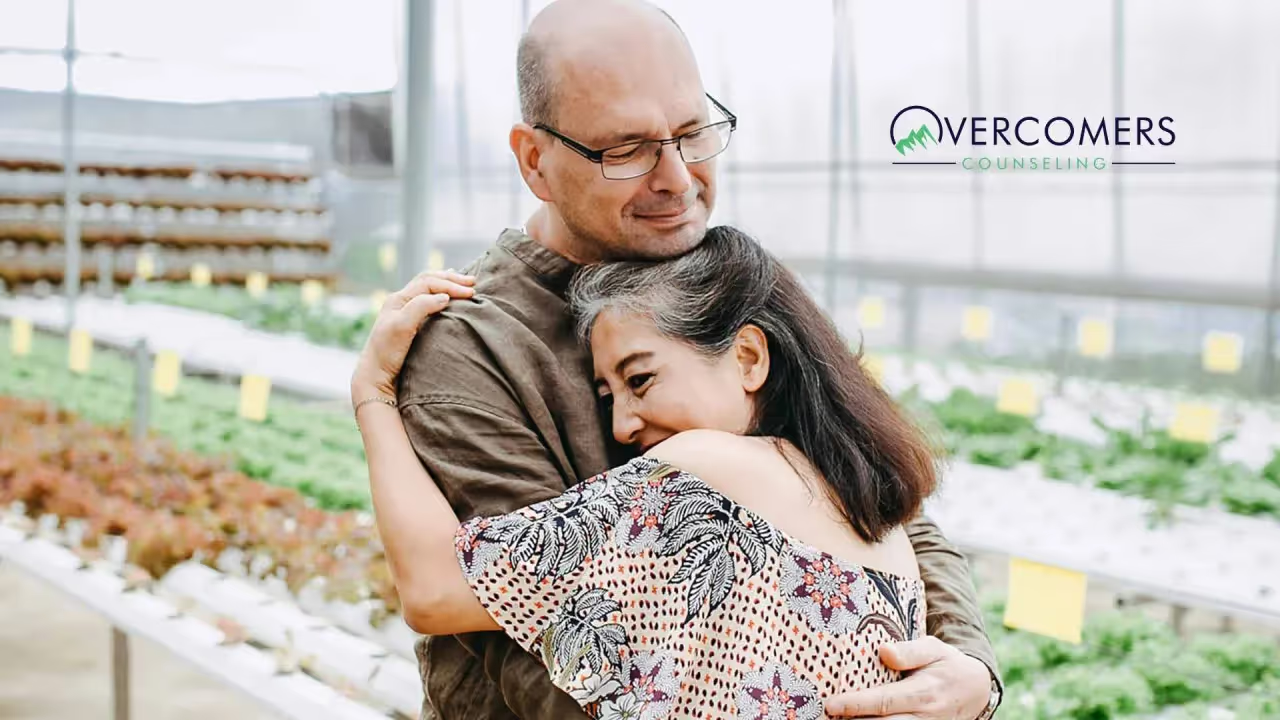IntroductionThe idea that couples counseling is reserved only for the young or those in the early stages of their relationships is a myth that needs...

The idea that couples counseling is reserved only for the young or those in the early stages of their relationships is a myth that needs dispelling.At the heart of nurturing any long-term partnership is the understanding that growth and improvement are always possible, irrespective of age.Couples counseling serves as a guided exploration of relationship dynamics, aimed at resolving conflicts, enhancing communication, and deepening intimacy.This form of therapy stands as a testament to the fact that no matter the number of years shared, relationships can benefit profoundly from professional support and guidance, opening new doors to fulfillment and mutual satisfaction.
The notion that one's later years are a deterrent to the benefits of couples counseling is a misconception that needs addressing.Many believe that as couples grow older, their capacity for change or improvement through therapy diminishes.This idea underestimates the adaptability and ongoing growth potential inherent in all individuals, regardless of age.
Challenging Common Misconceptions
A frequent misunderstanding is the belief that older couples are too set in their ways to modify their interaction patterns or adopt new relationship strategies.This assumption overlooks the depth of experience and insight that comes with age, which can be powerful catalysts for change.Therapists who specialize in working with mature couples are adept at leveraging these qualities to foster meaningful progress in therapy.Another common fallacy is the notion that longstanding relationship issues are unresolvable.This perspective discounts the transformative power of dedicated effort and professional guidance, even when problems have persisted over many years.With the right therapeutic support, couples can untangle complex issues, leading to significant relationship improvements.
Relationship Dynamics in Later Years
As individuals enter their later years, the dynamics within their relationships often undergo noticeable shifts.Life events such as retirement, changes in the home environment, or health challenges present new scenarios that couples must confront together.These situations can strain but also offer chances to strengthen bonds through shared experiences and mutual support.Couples counseling provides a valuable forum for partners to explore these transitions collaboratively, reimagining their relationship to reflect their current realities.This process can enhance communication, resolve long-standing disputes, and rekindle the sense of partnership and affection that originally united them.
As couples age, they encounter a set of unique challenges that can test the strength and resilience of their relationship.These hurdles often demand a reevaluation of shared goals, roles, and expectations.
Experiencing Retirement Together
Transitioning into retirement marks a significant change in daily routines and can affect a couple's dynamic.This period requires adapting to a new way of life where professional identities take a back seat, and there's more shared time than ever before.Finding common interests, respecting individual pursuits, and setting new goals together can help make this transition smoother and more fulfilling.
Dealing with Health Issues
Health challenges often become more prevalent as people age. Whether managing chronic conditions or navigating acute health crises, the strain on both partners can be immense.It's vital for couples to approach these situations as a team, offering mutual support and understanding.Learning to communicate needs and fears openly, without overburdening the other, plays a critical role in maintaining a healthy and supportive relationship.
Adjusting to an Empty Nest
When children leave home, couples face the task of adjusting to an empty nest. This shift presents an opportunity to rediscover each other and explore new facets of their relationship.However, it can also lead to feelings of loss and uncertainty about the future.Embracing this stage as a chance for growth and exploration can help couples find renewed purpose and deepen their connection.
Supporting Each Other Through Loss and Grief
Loss and grief are inevitable aspects of life, particularly in later years. The passing of friends, family members, or dealing with one's mortality can take a toll on individuals and their relationships.Offering a listening ear, a shoulder to lean on, and space to process grief is crucial.hrough such support, couples can find solace and strength in each other, building a deeper bond in the face of adversity.

Key factors to consider include the counselor's experience with older couples and their specific challenges, as well as their therapeutic approach and compatibility with both partners' personalities and expectations.A counselor who understands the nuances of aging and can offer strategies tailored to the unique dynamics of long-term relationships can make a significant difference.Finding a good fit might involve researching therapists with relevant expertise, reading reviews or testimonials, and possibly conducting initial consultations to gauge comfort levels and therapeutic rapport.Additionally, preparing for the first session by discussing goals and concerns together can help couples enter therapy with a clear sense of purpose and openness.
Making the most of couples counseling involves setting realistic expectations about the process and outcomes.Both partners need to approach sessions with a commitment to transparency and honesty, creating an environment where genuine feelings and thoughts can be shared without fear of judgment.This openness allows the therapist to provide more effective guidance and support.Actively applying the insights and strategies learned during therapy to everyday interactions can significantly enhance the relationship's quality.Whether it's through improved communication, revitalized intimacy, or better conflict resolution, the key is to consistently integrate these lessons into the fabric of the relationship, allowing for continuous growth and strengthening of the bond between partners.
The first step is to take responsibility for your actions and apologize. Next, be honest with your thoughts and feelings. Show that you're willing to change and be a better partner. Finally, set some boundaries to help prevent future hurt. Remember to be patient as it takes time to rebuild trust.
The length of therapy can vary depending on the couple's needs and the specific issues being addressed. Some couples might find a few sessions helpful, while others may continue for several months.
If you are having serious marriage problems, you may want to seek professional help. This can be in the form of marriage counseling or therapy. Therapy can also be helpful for couples dealing with marriage problems. This type of therapy is often called couple's therapy.
Addressing relationship issues is crucial because unresolved problems can significantly impact your emotional well-being, overall satisfaction, and the longevity of your partnership. Left unaddressed, these issues can lead to increased conflict, emotional disconnection, and even the end of the relationship.
Yes, therapists are bound by ethical guidelines and legal requirements to maintain client confidentiality. This means that the information shared during your couples counseling sessions will not be disclosed to anyone without your written consent, except in cases where there is a risk of harm to yourself or others, or when required by law. It is essential to discuss any concerns about confidentiality with your therapist at the beginning of therapy to ensure a safe and trusting therapeutic environment.
The key signs of relationship insecurity include feelings of jealousy and possessiveness, low self-esteem, difficulty trusting your partner, fear of rejection or abandonment, and anxious thoughts. If you are experiencing any of these symptoms, it may be beneficial for you to seek professional help.